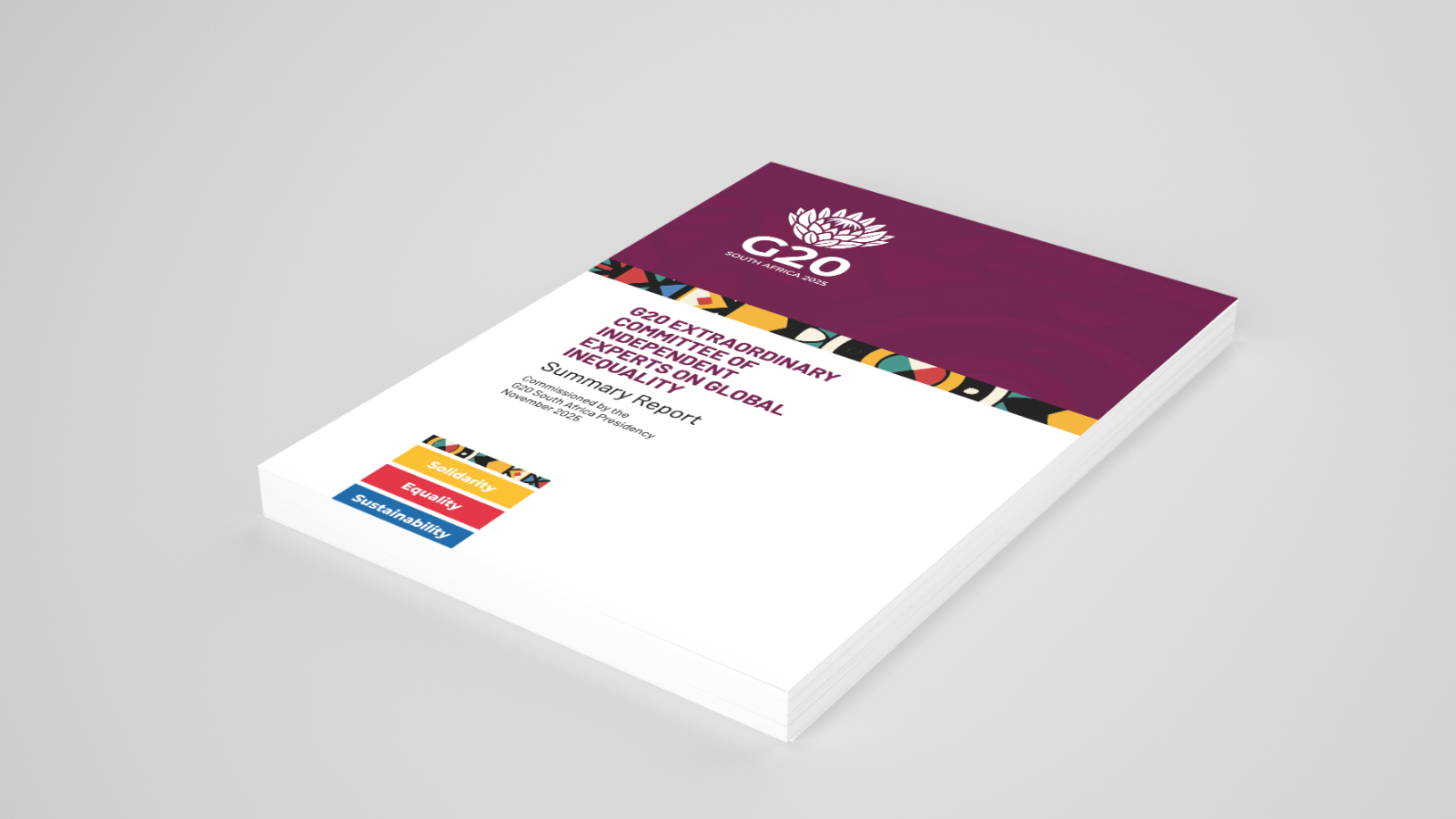
The first G20 report on global inequality warns of an “inequality emergency” and calls for a new international panel to coordinate action. For CESR, it offers a chance to turn recognition into lasting reform rooted in human rights.
The G20’s first-ever report on global inequality, released this week under South Africa’s presidency, signals a long-overdue reckoning with one of the defining injustices of our time. The report, written by an Extraordinary Committee of Independent Experts appointed by President Cyril Ramaphosa, warns of an “inequality emergency” and calls for the creation of an International Panel on Inequality to guide sustained global cooperation, modeled on the Intergovernmental Panel on Climate Change.
The Committee is chaired by Joseph E. Stiglitz (Roosevelt Institute) and includes Adriana E. Abdenur (Global Fund for a New Economy), Winnie Byanyima (UNAIDS), Jayati Ghosh (University of Massachusetts Amherst and ICRICT), Imraan Valodia (University of the Witwatersrand), and Wanga Zembe-Mkabile (University of the Western Cape and SAMRC).
Their findings are stark. Between 2000 and 2024, the richest 1% captured 41% of all new wealth, while the poorest 50% shared only 1%. 83% of countries (representing 90% of the world’s population) now meet the World Bank’s definition of “high inequality.” The report warns that such disparities are not only unjust but also corrosive to social cohesion, political stability, and democracy itself.
The report illustrates how collaboration between governments, researchers, and civil society can make global economic governance more inclusive and legitimate, a direction explored in Influencing the G20 Agenda for Economic Justice: A Guide for Change Makers, a joint report by CESR and allies. The proposal for an International Panel on Inequality also responds to a long-standing challenge in G20 policymaking: ensuring continuity and accountability beyond the rotating presidency cycle. Creating a permanent body could help sustain momentum on structural issues like inequality.
The report’s recommendations mark an inflection point in global efforts to make economies work for people and the planet. “This landmark report recognizes what communities and advocates have been saying for years: inequality is not just an economic problem, it is a human rights crisis,” said Dr. María Ron Balsera, CESR’s Executive Director. “An International Panel on Inequality could help governments, researchers, and civil society sustain collective attention and accountability over the long term.”
The report’s call to reform international tax rules, curb corporate concentration, and strengthen social protection aligns with many of the proposals advanced by civil society networks. Together with allies, CESR has contributed to the G20 policy dialogue through several initiatives advancing a more just and rights-based global economy. Within the Think20 (T20) process, CESR co-authored Human Rights, Equality and Taxation, How the G20 Can Support Rights-Aligned Tax Reforms which Enable Human Rights, Racial Justice, and Gender Justice, Tax Justice in Latin America, and The UN and the G20: Advancing Shared Goals for Global Governance, which call for more inclusive fiscal systems grounded in human rights. By framing equality through the lens of rights and nondiscrimination, the G20’s inequality report reinforces what CESR and its partners have advanced through their T20 contributions: that human rights offer a shared, legitimate framework for global cooperation and substantive equality.
As the report is presented to leaders at the G20 Johannesburg Summit, the proposed International Panel on Inequality offers an opportunity to bridge the gap between global research, policymaking, and public accountability.
“This moment offers a pathway for cooperation across governments, academia, and civil society,” Dr. Ron Balsera added. “If grounded in human rights, this effort can move the world beyond diagnosing inequality to actually remedying it.”